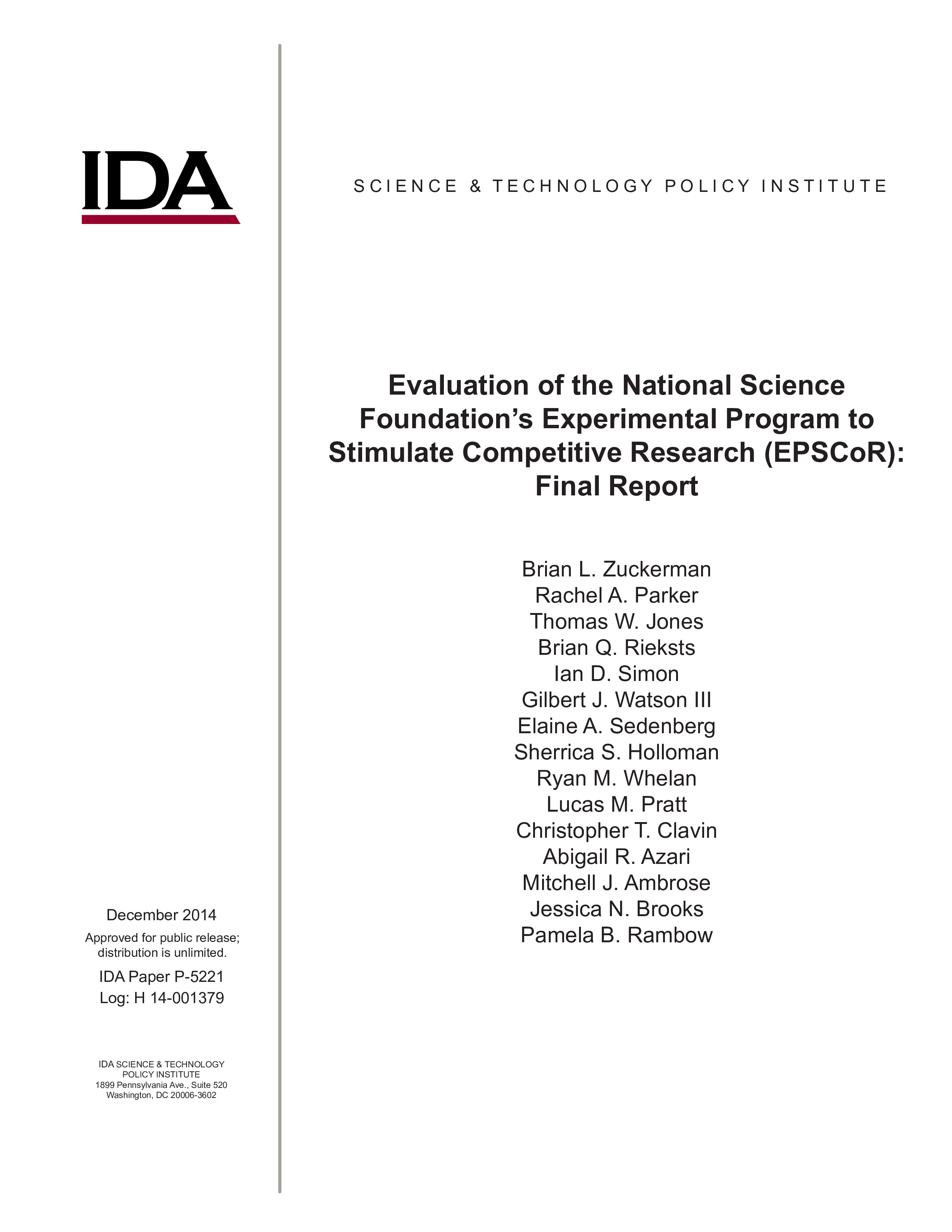The National Science Foundation created its Experimental Program to Stimulate Competitive Research (EPSCoR) to help meet its legislatively mandated objective of avoiding undue concentration of research and education in the United States. In 2011, NSF asked STPI to conduct a 2-year evaluation of the NSF EPSCoR program. The objective of the evaluation was to perform an in-depth, life-of-program assessment of NSF EPSCoR activities and of the outputs and outcomes of these activities. STPI was also asked to provide recommendations based on this assessment that would better target funding to those jurisdictions for which the EPSCoR investment could result in the largest incremental benefit to the jurisdictions' research capacities. The primary study design was historical in nature and involved collecting data from a variety of EPSCoR-related sources that spanned the program's lifetime. STPI conducted individual analyses related to the following topics: (1) legislatively mandated goals of the EPSCoR program; (2) progress in EPSCoR jurisdictions regarding research competitiveness; (3) EPSCoR activities, outputs, and outcomes regarding broadening participation in STEM and innovation; (6) EPSCoR eligibility criteria; and (7) effects on concentration.

